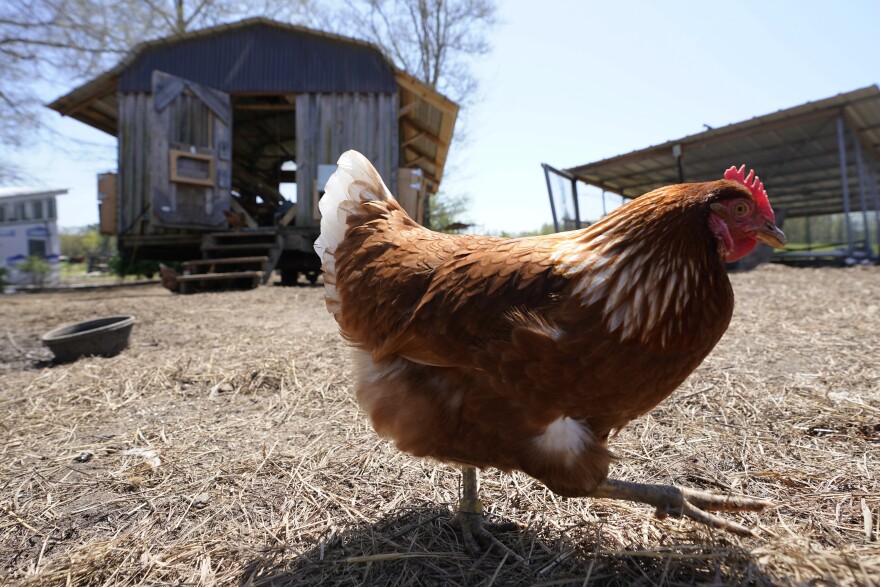Chickens are at higher risk of getting avian flu in the coming months, agricultural experts warn. This is the same strain of highly pathogenic avian influenza (HPAI) that’s attacked birds the past several years.
Normally, bird flu dies off in the summer, and doesn’t reappear in the fall. This latest version of the virus was first detected in the U.S. in 2022, and hasn’t mutated or gone away.
“This is uncharted territory,” said Mike Persia, professor at Virginia Tech in the school of animal sciences. “As far as I’m aware, there’s no other outbreaks that have been cyclic and returning like this.”
Persia said with the uptick in cooler temperatures and the fall migration of wild birds, domesticated poultry are at a higher risk. “As we start to see more migratory birds on top of us, we’re going to see more cases of avian influenza,” Persia said.
So far, in the past two weeks, there’s only been one known report of bird flu on a poultry farm in Virginia, in Goochland County. In the upper Midwest, Persia said, there have been a number of cases on farms.
The Virginia Department of Agriculture and Consumer Services (VDACS) and the Virgina Department of Wildlife Resources (DWR) sent out a joint press release on Oct. 8, warning poultry farmers to take precautions to limit contagion on their farms. “All poultry owners, especially backyard flock owners, should maintain the highest level of biosecurity to protect their flocks,” said Dr. Charlie Broaddus, State Veterinarian, VDACS.
If you have chickens or ducks, Persia advises keeping them indoors.
“If the birds are going outside, please make sure not to feed or water them outside,” Persia said.
He also recommends wear different boots near poultry, to avoid bringing germs on your shoes, and use hand sanitizer before feeding birds and after handling them.
He said it can be difficult to know when a bird is infected, but there can be some warning signs. “The birds are basically sick, they don’t feel well. So they’re gonna be very quiet. They’re gonna stop vocalizing,” Persia said.
He warned there may be no visible symptoms, and any unexplained deaths should be reported to state agricultural agencies.
You can report sick or dying birds to the State Veterinarian’s Office at (804) 692-0601 vastatevet@vdacs.virginia.gov, or the United States Department of Agriculture (866) 536-7593.


